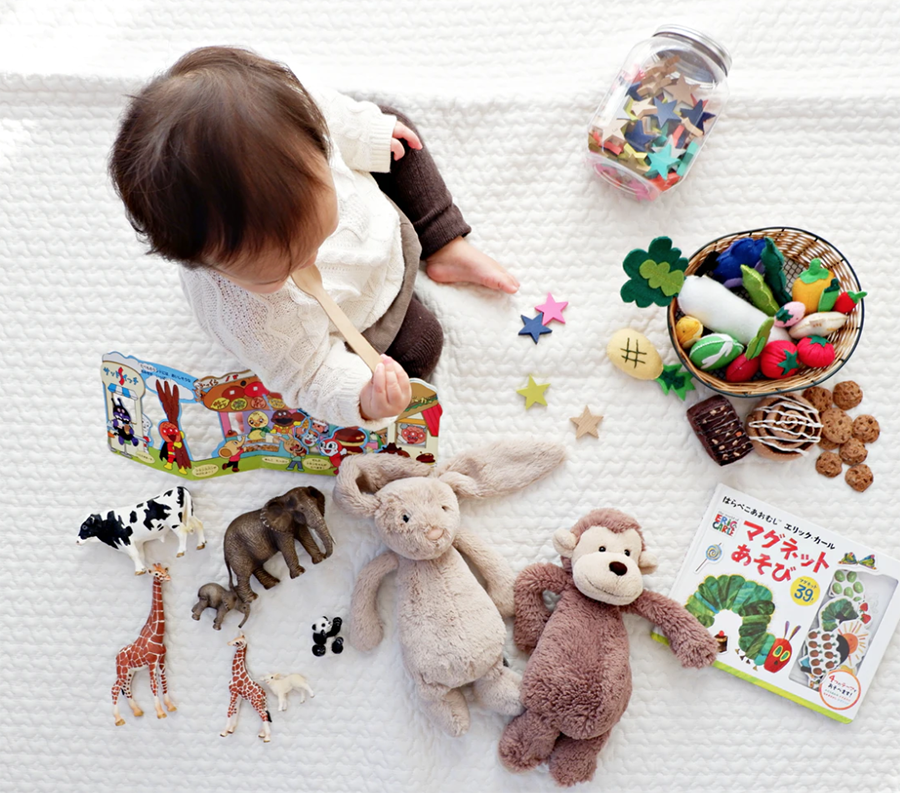Sleep difficulties I encounter with babies and toddlers who are heavily reliant on mum and/or dad to feed, rock, pat or even drive them to sleep are very common among families. Australian research showed a significant number of cases of postnatal depression can be resolved quickly by teaching your baby to sleep! Learn from a baby sleep expert!
When can I teach my baby to use self-settling? Once your baby is between 4-5 months, self-settling becomes an essential skill if you want your baby to be able to do longer stages of sleep through the night along with better day naps Why won’t my baby stay asleep once they have been fed, rocked, or patted to sleep? Well, it’s kind of like us falling asleep on Peter and waking up on Paul? This baby sleep expert says, keep listening.
When your baby becomes drowsy whilst being fed, held, patted or bounced they are in the process of transitioning into a light stage of sleep. After about 10-15 minutes, they move into a deep sleep, their breathing becomes shallow and they become still and floppy. We then gently place them down in their cot and sneak out of the room, Unfortunately, this is short-lived and will only last 20 minutes during the day and if you’re lucky, up to two hours at night.
The deep stages of sleep generally last 20 mins or so before they transition again into a lighter stage of sleep; babies at that point will either move into another sleep cycle on their own, OR they will wake to check their surroundings. Babies will fully waken if anything has changed from when they went to sleep (a valuable survival mechanism). So, if they have been patted, fed or rocked to sleep they will require the same process multiple times over in order for them to fall back to sleep. Review the stages of sleep.
Tips for self-settling:
- Follow an age-appropriate routine, and ensure your baby is not becoming overtired; any settling attempts will be unsuccessful with an overtired baby.
- Introduce positive sleep associations. A comforter is my #1 go-to – this will help replace you as their main stages of sleep association. You can also introduce wind downtime like offering a massage or reading a book.
- Optimize the room environment, A dark room signals the brain to release the sleep hormone (melatonin) and helps avoid stimulation. Most babies will experience early rising & find it difficult to resettle if they are cold, so maintaining a room temperature between 19-22 degrees is key
- Bring bedtime earlier. A bedtime between 6:30 pm – 7:30 pm is ideal for most ages. If you are still finding your little one is falling asleep prematurely try bringing feeding times earlier.
- Always put your baby down to sleep drowsy, but awake to encourage self-settling. All babies wake overnight, the difference being their reliance on you to get back to sleep, or whether they have the skills to fall back to sleep on their own.
- Ensure your baby is FULL. There is no point trying to encourage self-settling if your baby is due for a feed-in an hour or hasn’t eaten/fed well that day.
- Reduce your intervention. If you find you are unable to place your child in the cot without feeding, patting or movement; that’s ok, just avoid these actions until your baby is completely asleep. Be persistent with laying them down when they are still drowsy. Over a few days/weeks you can gently reduce the amount of intervention you are doing.
- Swaddling: for babies under 6 months: 0 – 14 weeks swaddle for sleep. Or as long as possible (until they can roll). 14weeks – 6 months try tucking them in tight.
- Choose your timing wisely. Choose a time you can commit to this process when you have support. Try to avoid going out (at night) for a period of 10 days. 2 weeks to give your baby the best chance possible to learn his new skill. Persistency & Consistency is key. Be sure to do the same for day and night sleeps, and persist for at least a week. Babies are fast learners and more adaptable than we give them credit for; Once given the chance – they may just surprise you!
While you’re here, check out our baby sleep expert Chantal Murphy’s guide to why your baby cries.


